Allies of Jeb Bush, John Kasich spar over military spending
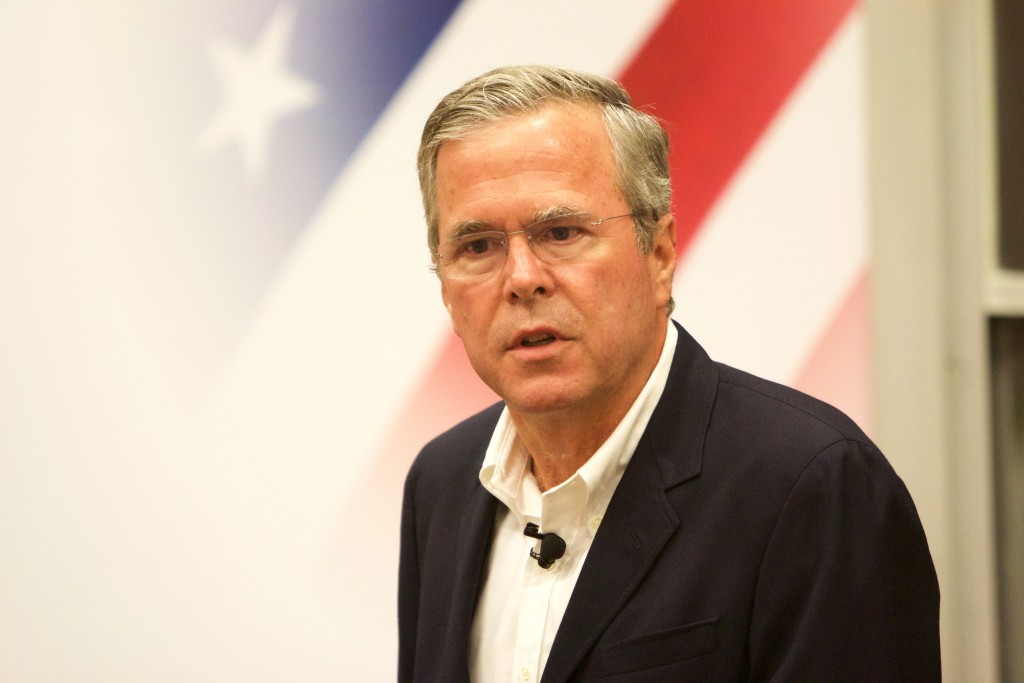
John Kasich proudly cites his efforts while in Congress to cut what he believed was wasteful defense spending. But allies for Jeb Bush, a Republican presidential rival, see a potential vulnerability for Kasich in military-minded South Carolina and are trying to slow the Ohio governor’s momentum after a strong showing in New Hampshire. An outside group backing Bush has begun airing a television ad ahead of the Feb. 20 primary, using Kasich’s own words. It’s an effort to undermine Kasich in a state that’s home to Fort Jackson and Parris Island, massive training installations for the Army and Marine Corps, as well as a number of air bases and a naval training school for nuclear submarine officers. Kasich and former House Speaker Newt Gingrich, winner of the state’s primary in 2012, are denouncing the broadside, but it’s clear that the rivalry between Kasich, the Ohio governor, and Bush, a former Florida governor, is intensifying. Bush’s team sees defense spending as a key area to draw distinctions. Right to Rise, the outside group backing Bush, launched the ad on Friday. It begins with a narrator saying “threats to America are growing,” over photographs of foreign leaders and the Islamic State group. It plays a clip of Kasich from his time in Congress saying he wants to turn the Pentagon into a “triangle,” adding “I spent a whole career trying to rein in defense spending.” Right to Rise also aired ads in New Hampshire hitting Kasich for backing a budget that led to the closure of an Air Force base in the state. Kasich finished second in the New Hampshire primary; Bush finished fourth. Kasich doesn’t shy away from his record, often bragging during campaign stops about his work to cut wasteful military spending during his 18 years on the House Armed Services and Budget Committees. “I was what they call a member of the ‘cheap hawk caucus,’” he said Thursday at a Pancake House in Pawleys Island. “In other words, we’re going to be as strong as we need to be, but we’re not going to waste money.” Kasich says his budget plan would increase military spending by $100 billion, focusing the money on the front lines while cutting bureaucratic jobs at the Pentagon. Gingrich, who served with Kasich in Congress but is not making an endorsement in the GOP primary, told The Associated Press that he was speaking out because he feels he has an “obligation to bear witness to the facts” and believes the ad distorts Kasich’s record. Bush hasn’t attacked Kasich directly on military spending while campaigning in South Carolina. At a stop in Fountain Inn on Saturday morning, Bush only mentioned Kasich to criticize Medicaid expansion in Ohio. Right to Rise, meanwhile, is standing by the ad. “John Kasich’s long history of cutting critical national defense projects is well-documented, from both his record and his own mouth,” spokesman Paul Lindsay said. Republished with permission of the Associated Press.
New Right to Rise ad says SC voters should end Donald Trump charade
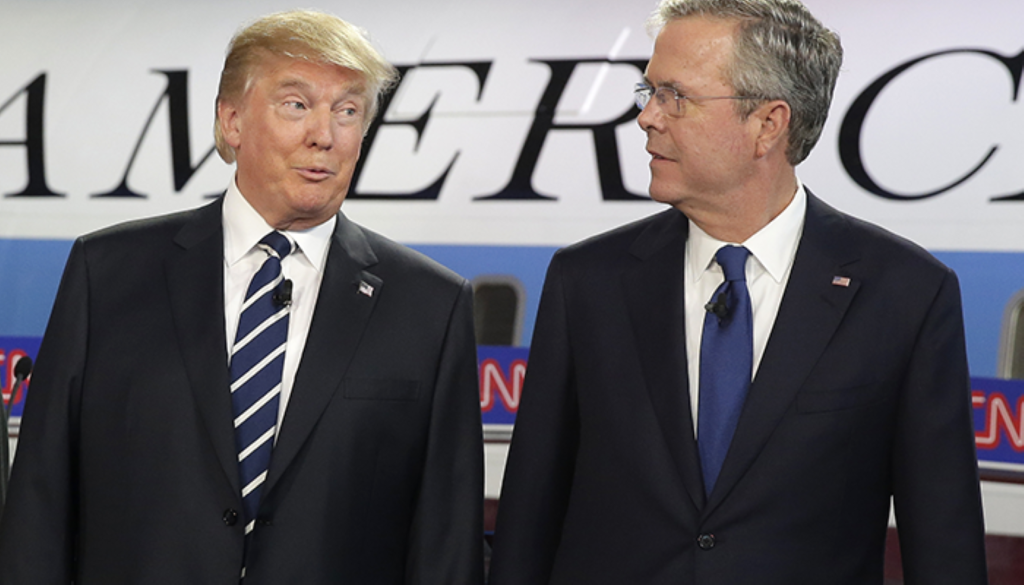
A new radio advertisement that takes a swipe at Donald Trump and his profanity-laced speeches is set to begin airing in South Carolina. The 60-second spot — paid for by Right to Rise USA, the super PAC backing Jeb Bush — ponders whether Trump shares South Carolina voters’ values. The advertisement features snippets from Trump’s speeches, where he is heard using some salty language. Right to Rise bleeps out any profanity. “The time is now for South Carolina to end the Trump charade,” a man says in the advertisement. “We need a serious leader in the White House. That man is Jeb Bush. He’ll unity our country, not divide us. He’s a man of deep faith who will make us proud.” The advertisement is set to begin airing on South Carolina radio stations Monday. The Bush campaign is pulling out all the stops in advance of the Palmetto State’s Republican primary on Saturday. Former President George W. Bush is scheduled to attend a campaign rally for his brother on Monday. The former president has also been featured in a radio spot paid for by the Bush campaign running in South Carolina. The former Florida governor is hoping for a strong finish in South Carolina. According to polling averages compiled by RealClearPolitics, he is currently in fifth. The South Carolina Republican primary is Saturday.
Jeb Bush doing whatever it takes to stay relevant

Jeb Bush‘s supporters have spent $15 million on slickly produced ads to win over Iowa voters. Barely registering in the polls and increasingly desperate in the shadow of the Iowa caucuses, he’s now trying a cost-free, personal tactic: hugs. When 67-year-old Harrison Cass, Jr., of Waterloo, pledged to caucus for Bush Monday night, the former Florida governor jogged across a crowded town hall-style meeting to embrace him. “I give out hugs,” Bush said at the Cedar Falls event. “I’m from Miami, that’s what we do.” Bush, once considered the Republican presidential front-runner, is doing whatever it takes to stay relevant in the 2016 contest. And whether it’s a friendly squeeze or a scathing attacks ad from his allies, he’s showing no signs of going quietly. That’s despite the wishes of some Republican strategists, who fear his underdog candidacy is making it harder for his party’s mainstream wing to coalesce behind another candidate. All the while, billionaire businessman Donald Trump has maintained a huge lead over the so-called establishment candidates. Bush’s super PAC, Right to Rise, has disgorged tens of millions of dollars attacking the candidates seen to be in direct competition with him: Florida Sen. Marco Rubio, Ohio Gov. John Kasich and New Jersey Gov. Chris Christie. Right to Rise has spent more than $24 million on ads contrasting the former Florida governor with one or more of those three, most often Rubio, data from advertising tracker Kantar Media’s CMAG show. That’s on top of a tidal wave of millions of dollars of mail to voters in Iowa and New Hampshire opposing Rubio, Kasich and Christie — sometimes all three at once, expenses documented in Federal Election Commission reports. Overall, Bush’s allied super PAC had spent more than $80 million on television and radio advertising this campaign season as of midday Sunday. That includes more than $15 million in Iowa alone — which is about as much as the total by super PACs aligned with the other Republican candidates still in the race. Bush’s team privately jokes they’ve successfully lowered expectations headed into Monday contest by having scored just 2 percent in the Des Moines Register’s weekend poll. “Talk to me on Tuesday,” Bush said when asked about his precarious political standing during a brief interview with The Associated Press, referencing the day after Iowa’s caucuses. He also told Rubio supporters to stop “whining” about attack ads. “You don’t think that the Republican nominee is gonna get the bark scraped off him by the Clinton machine? This is minor league baseball, man,” Bush told AP. “If you can’t handle that, then how you gonna deal with a unified Democratic Party that will go out to try to destroy you? And be president of the United States?” he said. “This is a tough job. This isn’t bean bag. Everybody’s gotta get a grip.” Of Right to Rise’s 22 different commercials on broadcast television, none has played more frequently than a vicious spot hammering Rubio as inconsistent, CMAG data show. That commercial, depicting Rubio as a weather vane atop a house blowing around to point to different positions the super PAC says he has taken, had been on TV some 2,791 times as of early this week. Another of the super PAC’s most-broadcast spots is a cutting portrayal of Rubio as just as unqualified for the White House as Trump and Ted Cruz, the conservative Texas senator who has been near the top of many Iowa polls. The commercial begins by reminding viewers that the president must protect the country from attacks. One by one, the images of Trump, then Cruz, then Rubio are traced behind a desk in the Oval Office as a narrator asks, “Will he be impulsive and reckless, like Donald Trump? Will he have voted to dramatically weaken counterterrorism surveillance, like Ted Cruz? Will he have skipped crucial national security hearings and votes just to campaign, like Marco Rubio?” “The gross piling on against Marco by Right to Rise does not feel strategic, it feels personal and vindictive,” said Katie Packer, a Republican strategist who favors Rubio and is now leading a campaign to weaken Trump. “There’s no fundamental flaw other than who he is,” Packer said of Bush, suggesting that voters simply never warmed to the idea of a third Bush presidency. “The best marketing campaign in the world can’t sell a product that people aren’t interested in considering.” Bush is spending the Iowa campaign’s final hours campaigning alongside his son, Jeb Bush Jr., who set a low bar for success during a campaign appearance in Hiawatha Sunday afternoon. “It’d be great to be the best governor to out of here and beat expectations, whatever those are,” the younger Bush said when asked about his expectations. Meanwhile, Harrison said Bush was the first presidential candidate he ever physically embraced. Bush’s public display of affection caught him off guard. “I thought he was going to shake my hand,” Harrison said. “He’s really trying to reach out to people.” Republished with permission of the Associated Press.
Email insights: Jeb Bush, Marco Rubio campaigns make fundraising pitches before first votes
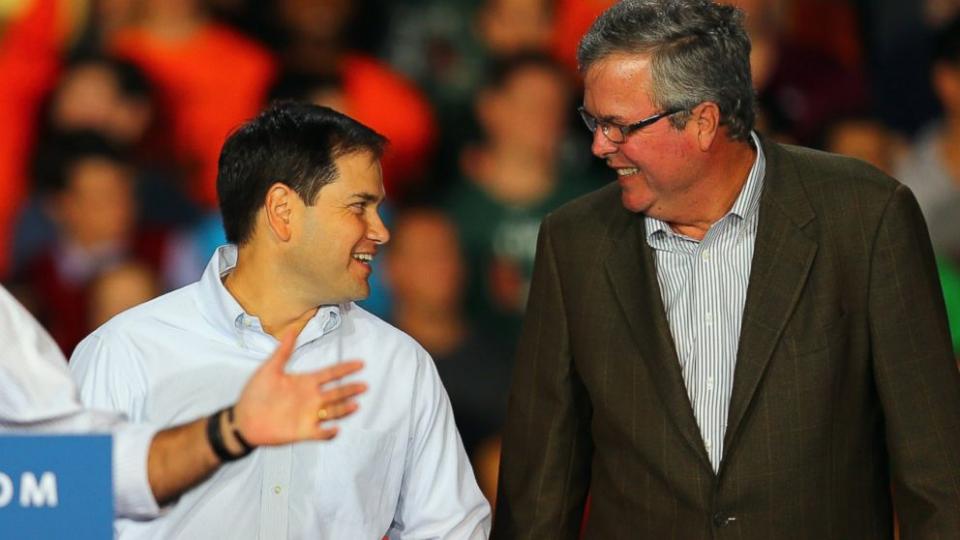
There’s one week until the first nominating contest of 2016, and candidates are doubling down on their campaign efforts in Iowa and New Hampshire. Marco Rubio began the week in the Hawkeye State, scheduling seven events in two days, and is planning to spend the entire week leading up to the Iowa caucuses barnstorming through the state. He isn’t alone: Jeb Bush, his friend and fellow GOP hopeful, is also campaigning in Iowa, holding events there to rally support by Monday’s caucus. He’s also campaigning hard in New Hampshire, where he’s hoping to stage a comeback when voters head to the polls on Feb. 9. Boots on the ground, though, aren’t the only way political hopefuls are hoping to drum up support. In recent days, candidates have been contacting supporters to ask for money to help with the final stretch. On Wednesday, the Bush campaign sent an email to supporters touting an Emerson College Polling Society survey that has the former Florida governor in second place in New Hampshire. “Friend — first the good new: A new poll released last night has Jeb in second place, surging past the nearest competition,” the email reads. “The bad news: This is only going to increase the amount everyone else will spend against us, and we’re seriously close to missing our $250,000 goal for the month. Unless you step up now, we won’t be able to combat the attacks that are coming, and we’ll lose.” The email asks supporters “rush a contribution of just $1” to help the campaign get on track. Bush raised more than $24.8 million as of Sept. 30; while Right to Rise, a super PAC backing Bush, has raised more than $103.2 million, according to the Center for Responsive Politics. Bush isn’t alone in sending a fundraising plea to supporters as the first nominating contest nears. On Wednesday, the Rubio camp sent an email encouraging supporters to chip in. “No matter the size of your donation, it will make a huge impact and ensure we are able to succeed in the Iowa caucuses next week and ultimately win the Republican nomination,” the email read. According to Center for Responsive Politics, Rubio raised more than $15.1 million as of Sept. 30, while Conservative Solutions PAC, the super PAC backing Rubio, raised more than $16.1 million. The Iowa caucuses are Monday, and the New Hampshire primary is one week later on Feb. 9.
Jeb Bush super PAC attempts to crowdfund Super Bowl ad
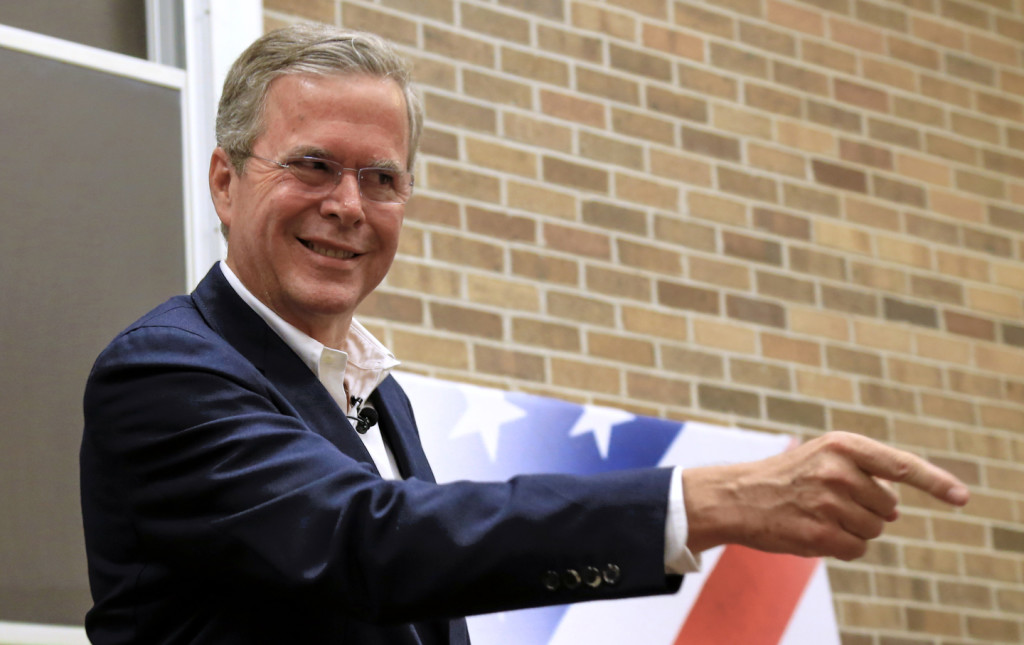
The super PAC supporting GOP hopeful Jeb Bush is asking donors to pitch in to fund a Super Bowl advertisement. On Friday, The New York Times reported Mike Murphy, the head or Right to Rise, urged donors in an email to contribute online to air an advertisement supporting Bush in New England during the Super Bowl. The Super Bowl is Feb. 7, two days before New Hampshire’s primary on Feb. 9. According to the Times, the email to donors included a link to the website. The organization is looking to raise $300,000 for the advertisement, according to the fundraising campaign’s website. “We need your help to run the first-ever political ad funded by everyday Americans during the 50th anniversary of the BIGGEST sports event of the year,” states the fundraising website. Much like other crowd-sourced sites, the committee is offering donors thank-you gifts for donating. A “super fan” — or someone who gives a $25 donation to the effort — gets a preview of the ad and a Right to Rise USA Big Game Koozie; while someone who gives a $1,000 donation is considered a “coach” and gets an “one-of-a-kind Right to Rise USA gift basket.” Want to be a “MVP?” According to the site that designation is reserved for someone who gives $10,000. Those donors would be invited to a watch party in New Hampshire and would get to attend a strategic briefing with Murphy. As of Sunday afternoon, 176 donors gave a total of $31,717 toward the $300,000 goal. Right to Rise has raised more than $103 million to support Bush’s run for president. The organization has spent more than $61.8 million, according to The Center for Responsive Politics. According to NBC News, Bush and his allies spent $49 million on advertisements through Jan. 9. The committee spent most of that sum, according to the NBC News report.
Cash-rich super PACs prolong flagging presidential campaigns
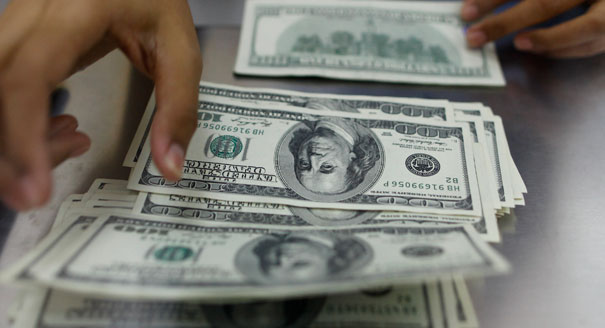
Jeb Bush‘s recent cancellation of advertising plans in Iowa and South Carolina was yet another cost-saving step for a down-in-the-polls presidential campaign that had already thinned its staff. If not for his flush super PAC, the Republican might be gone from the contest by now. That group, Right to Rise, has burned through half of its $103 million — which still leaves it with about as much cash as John McCain spent during the entire 2008 GOP nominating contest. In the 2016 race, money isn’t buying love from voters. It is, however, buying some candidates more time. Less than a month before voting begins, the Republican field is still thick with a dozen presidential hopefuls. Super PACs are one reason why. Like Bush, Chris Christie and John Kasich are leaning heavily on these outside groups to communicate with voters. Nearly 96 percent of the money for Bush, Kasich and Christie commercials has come not from their official campaigns, but from their supportive super PACs, according to advertising tracker Kantar Media’s CMAG. This is the second presidential campaign since super political action committees burst on the scene after the Supreme Court’s Citizens United decision. The 2010 case made it clear that donors can contribute unlimited amounts of money to groups supporting specific candidates, so long as the candidates don’t directly control the spending. That means that at any given time a wealthy admirer of a candidate can write a huge check to a super PAC to help keep that person in front of voters, through commercials and mailings. Some super PACs, including one for Carly Fiorina, even have campaign-like voter outreach efforts such as door-knocking and publicizing events that feature the candidate. Those super PAC investments work as an incentive against a candidate giving up too soon, however dim the prospects. While super PACs have dumped buckets of money into politics, they’ve also helped ensure a more competitive democratic process, said Bradley Smith, a former federal elections commissioner who advocates for looser fundraising restrictions. “The complaint used to be that the candidates would fold up before anyone even voted,” said Smith, founder and chairman of the Center for Competitive Politics. “It’s not a bad thing that’s not the case anymore.” One of the first presidential hopefuls to take advantage of the post-Citizens United campaign finance landscape was Newt Gingrich, the former House speaker who sought the 2012 GOP nomination. Las Vegas casino billionaire Sheldon Adelson put up $20 million of his family’s money to back his longtime friend Gingrich. That money paid for TV ads when the candidate couldn’t afford his own, helping him stay afloat through third-to-vote South Carolina, which he won. Rick Santorum was in a similar position, benefiting from Wyoming investor Foster Friess’s super PAC assistance until his candidacy took flight after a surprising Iowa win. “There’s no question that a super PAC gives you the ability to sustain the appearance of a campaign even if you can no longer raise money,” Gingrich told AP. Both eventually lost to Mitt Romney, who dominated traditional campaign fundraising and also had a big-money super PAC helping out. Gingrich said the 2016 race differs from 2012 in several crucial ways. “That was one guy with a bunch of money versus the rest of us, and now it’s a bunch of guys with a bunch of money,” he said. At the same time, a celebrity businessman and political newcomer has shown that “money may not matter as much,” Gingrich said. Donald Trump‘s campaign only recently made its first TV ad, putting up $2 million to air it this week in Iowa and New Hampshire. He has dominated the GOP contest without spending much campaign money, and without major help from super PACs — which he has decried as “disgusting.” Bush, a former Florida governor, is in roughly the opposite position: His super PAC Right to Rise has pumped more than $50 million into its advertising campaign, yet he remains in the single digits in most preference polls. The group is pressing ahead. It has booked at least $24 million more in ads over the next nine weeks in 10 states, including early voting Iowa, New Hampshire and South Carolina, CMAG shows. Over the weekend, Bush’s official campaign cuts its South Carolina advertising plan by half and pulled its Iowa ad reservations altogether, an Associated Press analysis of the CMAG data found. Kasich, governor of Ohio, just began airing his first television ad on Tuesday, according to the campaign. But his super PACs have been busy for months. They’ve showered New Hampshire viewers with almost $10 million worth of commercials and this week told federal regulators they’re buying more ad time and distributing pro-Kasich — and anti-Christie — literature to voters. Republished with permission of the Associated Press.
New Right to Rise ad calls out Marco Rubio for missed votes

A new advertisement from a super PAC supporting Jeb Bush is criticizing fellow Floridian Marco Rubio for missing national security hearings and votes. “Over the last three years, Rubio has missed important national security hearings and missed more total votes than another senator. Politics first, that’s the Rubio way,” says the 30-second ad from Right to Rise USA. The advertisement will begin airing in Iowa this week, according to The Des Moines Register. Recent national polls show Rubio is in third place, behind Donald Trump and Sen. Ted Cruz. Bush is in sixth place, according to polling aggregation site RealClearPolitics. Rubio has taken hits in the past about his absences, but has defended them. In an interview earlier this month with CBS News’ “Face the Nation,” he said, “When there are important votes, especially those where I can be a decisive voice, I’m going to be there.” Alex Conant, a Rubio campaign spokesman, told the Des Moines Register on Tuesday that the advertisement didn’t mention Rubio’s position on the Senate intelligence committee, where he attended high level briefings on the Paris attacks. He also took to Twitter to criticize the ad. Rubio attends classified Senate Intel Committee briefing on Paris attack. Bush’s PAC attacks him for missing Paris hearing anyways. — Alex Conant (@AlexConant) Dec. 29, 2015 DNC used same attack last month; media called it “cheap hit” https://t.co/wNHwAchf3I — Alex Conant (@AlexConant) Dec. 29, 2015 On Tuesday, Rep. Mike Pompeo, a Kansas Republican and member of the House intelligence committee, called the advertisement “misleading and (reflecting) a deep misunderstanding of Marco’s critically important record working to keep Americans safe.” “I’m proud to stand with Marco – he will be an outstanding commander-in-chief. As a member of the House Intelligence Committee and a veteran, there is no doubt that Marco has shown great national security leadership in the Senate,” Pompeo said in a prepared statement. Rubio is campaigning in Iowa on Tuesday and Wednesday. He’ll be joined by Rep. Trey Gowdy. Bush is spending Tuesday in New Hampshire. He is expected to campaign in South Carolina on Wednesday. https://www.youtube.com/watch?v=LoS21m1PFpM
Pro-Jeb Bush group attacks GOP rivals, invokes national security
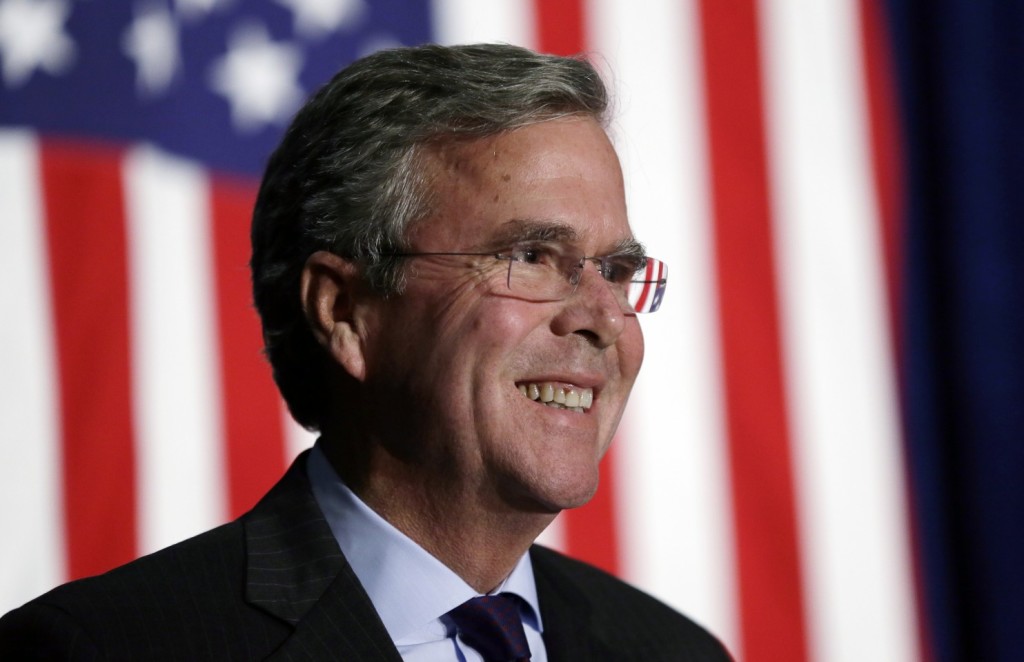
A group supporting Republican Jeb Bush is invoking U.S. national security in a new ad attacking three of Bush’s GOP presidential rivals. The 30-second spot alludes to the heightened state of alert in the U.S., based on the Islamic State-backed attack last month in Paris. The narrator describes Donald Trump as “impulsive and reckless.” A news release about the ad from the group Right to Rise USA says Trump, Texas Sen. Ted Cruz and Florida Sen. Marco Rubio lack the “experience and knowledge” to be president. It faults Cruz for opposing the meta-data collection program aimed at gleaning possible terrorism connections in the United States. And it cites Rubio for having “skipped crucial national security hearings and votes in the Senate.” The rip at Rubio has been one Bush has often alluded to while campaigning. But he has stopped short of criticizing his onetime protege directly. The ad narrator also states that more than two dozen generals and admirals support Bush, “because Jeb has the experience and knowledge to protect your family.” Bush has lagged behind them and retired neurosurgeon Ben Carson in national and early voting state polls, despite being backed by Right to Rise, a group that raised more than $100 million this year and raise and spend unlimited sums. The ad comes within 24 hours of Trump’s call for halting immigration of people who are Muslim. It will begin airing Tuesday in Iowa and New Hampshire, the first two states to vote next year, as well as South Carolina and Nevada, which also hold February contests. Republished with permission of The Associated Press.
In Jeb Bush ad “Leader”, he says he’ll take out ISIS
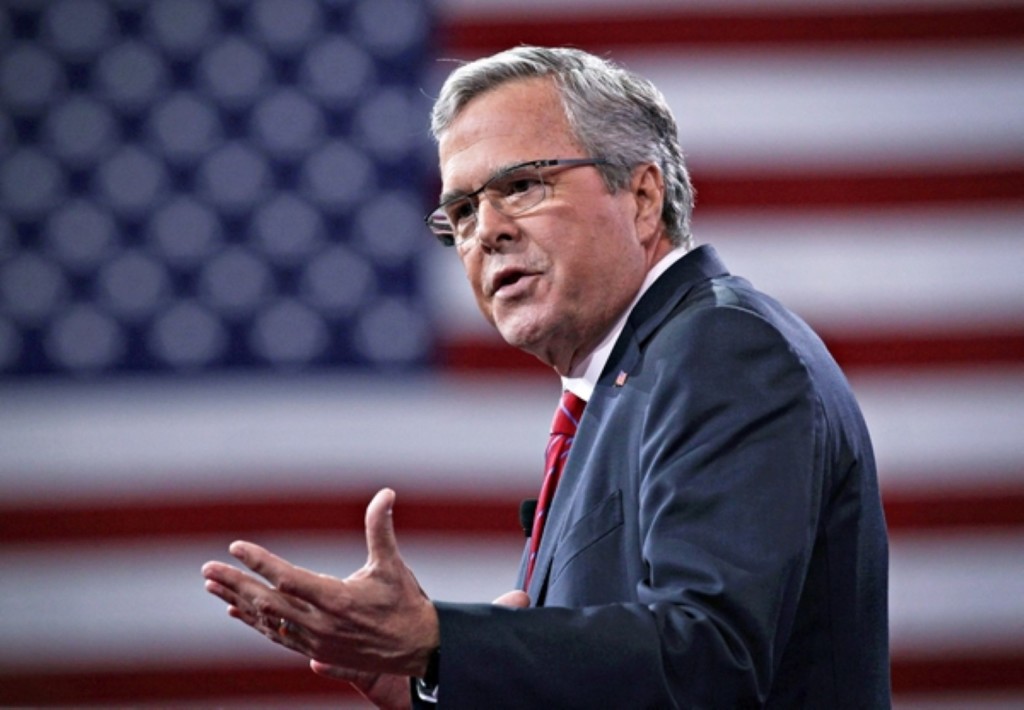
It’s not exactly news that Jeb Bush is having trouble breaking through in the polls. In a survey released on Friday by CNN/ORC, the former Florida Governor is mired at just 3 percent nationally. He’s not doing much better in Iowa, where a Monmouth University poll showed him at 4 percent on Monday. But nobody is on the air more than Bush, thanks to the financial resources that his Super PAC Right to Rise has at its disposal. His latest ad is called, “Leader,” where he says “we are what war with Islamic terror.” Watch:
What does Jeb Bush get for $20 million in TV ad buys? Not much.

Jeb Bush and his supporters have spent more than twice that of any other candidate or outside group on TV ads in the 2016 presidential race. And what does the former Florida governor get for nearly $20 million, asks Mark Murray of NBC News. Apparently, not much. Bush’s poll numbers are currently languishing in the single digits both nationally and in the early primary states. Right to Rise, the pro-Bush super PAC, has made $19.5 million in ad spending for Iowa, New Hampshire and South Carolina. Murray notes that the campaign also spent another $438,000. In comparison, the 501c4 organization supporting fellow Floridian Marco Rubio – Conservative Solutions Project – paid half that amount, $8.4 million to date. Hillary Clinton’s presidential campaign, on the other hand, has spent $8.1 million, while her supporting Super PAC spent about $199,000. To put those numbers further in context, campaigns receive substantial discounts on TV ad time, whereas Super PACs and other outside groups may have to pony up to four times as much for similar ad space. Murray, along with NBC News partners SMG Delta, have calculated who spent what in the 2016 presidential ad wars – a not-quite-perfect way to measure winners of the secret advertising primary. Through Nov. 21, the leaders are Bush with $19.9 million ($19.5 million from Right to Rise Super PAC, $438K from campaign), followed by Rubio with $8.4 million (all from outside group Conservative Solutions Project), Clinton with $8.3 million ($8.1 million from campaign, $199K from Priorities USA Super PAC) and Ohio Gov. John Kasich with $7.3 million (all from two outside groups). After Kasich, comes New Jersey Gov. Chris Christie with $5.7 million ($5.3 million from America Leads Super PAC, $407K from campaign), Louisiana Gov. Bobby Jindal – who just dropped out of the race – with $3.3 million (all from outside groups), Vermont Sen. Bernie Sanders with $3 million (all from his campaign), South Carolina Sen. Lindsey Graham at $1.7 million ($1.6 million from Super PAC, $100K from campaign) and retired neurosurgeon Ben Carson with $1.5 million (all from his campaign). For the week of Nov. 15-21, the biggest spenders were Bush with $2 million, all from his Super PAC; Sanders with $940,000, all from his campaign; Clinton with $741,000, all from the campaign; Rubio with $619,000, all from Conservative Solutions; Kasich with $352,000, all from his supporting Super PAC New Day for America, Christie with $313,000, all from America Leads Super PAC; and Carson with $214,000, all of which came from his campaign.
Al Cardenas worries about the drift of the current GOP
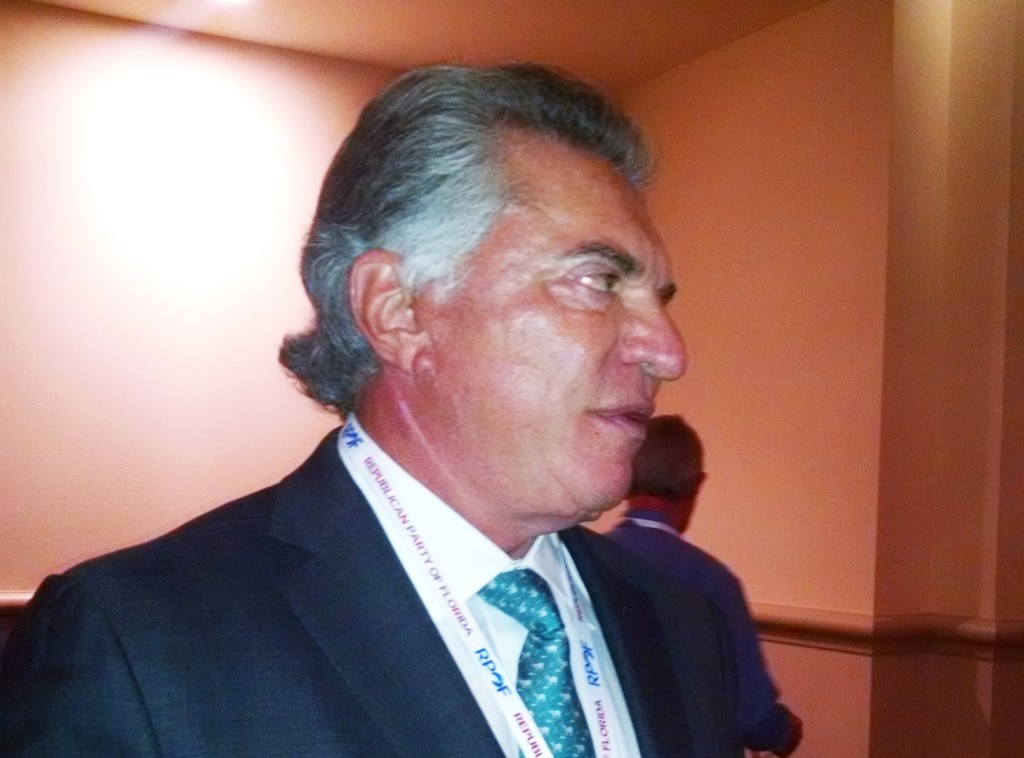
Al Cardenas‘ perspective on what’s going on with the Republican Party in 2015 is worth listening to. The former two-term Republican Party of Florida Chairman and head of the Washington-based American Conservative Union from 2011-2014 (which hosts the annual CPAC conference every winter) is backing Jeb Bush this cycle, but also has ties to Marco Rubio. Cardenas spoke at the Sunshine Summit on Friday afternoon, but his comments to a handful of reporters in the hallways of the Rosen Shingle Creek hotel in Orlando were as interesting as anything he said on stage. When asked about the state of the national GOP, Cardenas sounded somewhat alarmed. “I’m a firm believer that’s all’s well that ends well. That continues to be my hope. All is not well now. I don’t think the Republican Party as a brand for a long term future can be successful, given what I’m watching. To be successful, you gotta appeal to people’s higher instincts, not lower instincts. You have to inspire people to be better, not to be mad or angry. And you’ve gotta convince them that you can lead them to a better tomorrow, rather than to get even with the bad guys. And if our party is unable to do that, through our eventual leadership, then our party is going to face some long term consequences.” Noting how much success the Republican Party has had nationally since Barack Obama was elected (816 Democratic lawmakers have lost their jobs in state legislatures since 2009, as well as the party taking control of the House and Senate), Cardenas says the contrast is stark when it comes to executive leadership in Washington. “My hope is that whomever we select as our nominee can get the party nationally to meet up with the bar we’ve set up with the states,” he says, adding that he’s not certain at this time if Donald Trump or Ben Carson can beat Hillary Clinton at this time. When asked about the report that Right to Rise, Jeb Bush’s super PAC, may spend millions (perhaps tens of millions) to go after Marco Rubio, Cardenas said that shouldn’t be surprising, since politics always comes down to going after your opponents. “I don’t talk to Mike Murphy (Right to Rise’s strategic leader), as the top-tier gets redefined and we get into next year, all four or five top-tier candidates are going to begin contrasting with each other. Trump’s doing it, Ted Cruz has begun doing it with Marco, Ben Carson has tried to stay out of the fray, but I don’t believe that will last for long. … I think all of them will get into that contrasting business, and I think the only reason you’re paying a lot of attention to it is because of their relationship. If it wasn’t for that, you’d think of it as, ‘Hey, everybody is going to be involved with that.’”
Anticipating attacks, Marco Rubio campaign posts Web ad showing Jeb Bush praising him
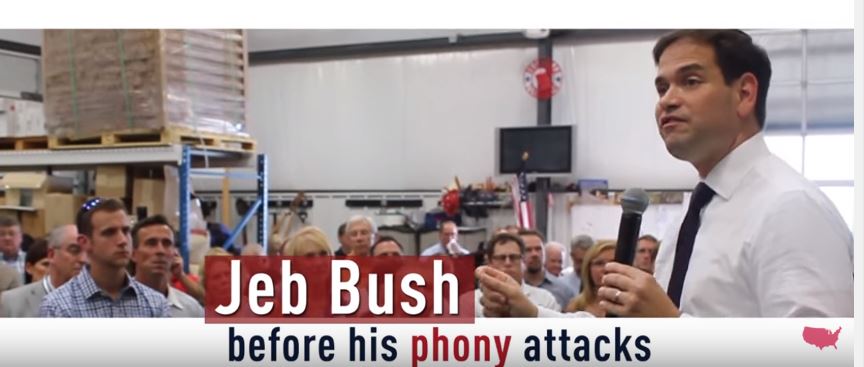
According to a report in Tuesday’s New York Times, the Jeb Bush super PAC Right to Rise may spend up to $20 million in ads attacking Marco Rubio. The Rubio camp’s answer seems to be along the lines of Bring.It.On. Shortly after the story went live online Monday night, the Rubio campaign sent an e-mail to supporters, asking for financial contributions with the headline mocking Bush’s previously stated comment that he wanted to indulge in a “joyful campaign.” “How is that the kind of ‘joyful’ campaign that Jeb claimed he wanted to run?!?!” asks Rubio campaign manager Terry Sullivan. Early Tuesday, Team Rubio came back again, this time with a video called “Before the phony attacks” showing Bush praising Rubio over the years. Although the two perhaps were never as close as some media reports indicated at the beginning of this year, they have always been respectful toward each other. But Bush struck first last month in the last debate in Boulder, Colorado where he took a shot at Rubio’s poor voting record in the Senate. Rubio appeared prepared for the question and shut down the attack forcefully, with Bush being the one who was criticized as being slow-footed. But the attacks are only beginning, according to the Times report. Rubio’s response, as is apparent from the new Web video, is simply to turn the other cheek and ask objective GOP primary voters to question why Bush is now apparently going negative when he’s always been such a fan? The ad is filled with Bush saying things such as “I’m a huge Marco fan,” and “Marco has an hopeful, optimistic message based on our principles.”


